Filter by

(Foreign) Bodies: Stigmatizing New Christians in Early Modern Spain
Ideologi kemurnian darah (limpieza de sangre) membagi masyarakat Iberia pada masa awal modern menjadi dua kelas yang berbeda: Kristen Lama dan Kristen Baru. Kristen Baru, yaitu Conversos (Yahudi yang memeluk Kristen) dan Moriscos (Muslim yang memeluk Kristen), serta keturunan mereka, dianggap sebagai Kristen yang inferior dan selalu cenderung untuk murtad. Pada awal abad ke-17, terdapat peningk…
- Edition
- -
- ISBN/ISSN
- 9783205209874
- Collation
- 1 online resource
- Series Title
- -
- Call Number
- 306.81 GEB b

" . . . A Right Good People"
Kumpulan kisah nyata yang dikumpulkan dari masyarakat Appalachian Selatan, buku ini mencerminkan adat istiadat dan nilai-nilai era lain. Diterbitkan pada tahun 1974, cerita-cerita yang dikumpulkan dalam "... A Right Good People" awalnya diterbitkan di ###Charlotte Observer,# surat kabar terbesar di Carolina pada tahun 1970-an. Kisah-kisah ini ditulis dengan tujuan untuk menggambarkan warisan ma…
- Edition
- -
- ISBN/ISSN
- 9781469638362
- Collation
- 1 online resource
- Series Title
- -
- Call Number
- 899.2213 WAR r

Questions of Style; Literary Societies and Literary Journals in Modern China,…
Menghadapi isu sentral gaya dalam sastra, studi perintis ini adalah keharusan bagi sinolog, tetapi juga untuk semua mahasiswa sastra perbandingan. Michel Hockx mengambil sebagai titik awal pengamatan bahwa sebagian besar penulis periode Republik mematuhi praktik tradisional yang jelas dalam berkumpul di masyarakat sastra, sambil pada saat yang sama menunjukkan preferensi yang jelas untuk menerb…
- Edition
- -
- ISBN/ISSN
- 9789004228641
- Collation
- online resource (, p.)
- Series Title
- Studi Tiongkok
- Call Number
- 895.109 HOC q
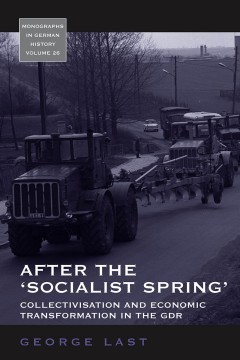
After the "Socialist Spring"
Drawing on a broad range of archival material from state and SED party sources as well as Stasi files and individual farm records along with some oral history interviews, this book provides a thorough investigation of the transformation of the rural sector from a range of perspectives. Focusing on the region of Bezirk Erfurt, the author examines on the one hand how East Germans responded to the…
- Edition
- -
- ISBN/ISSN
- 9781789201086
- Collation
- -
- Series Title
- Monographs in German History
- Call Number
- -
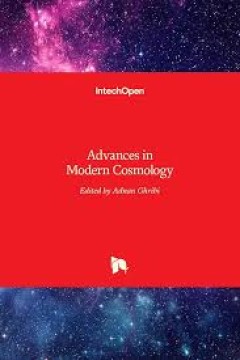
Advances in Modern Cosmology
To be human is to care how the physical world came, whether it has boundaries and what is to become of it. Cosmology is the science that tries to answer these eternal questions. During the twentieth century, it has been elevated from the rank of philosophy to precision science thanks to the advances in both theory and observation. General relativity, quantum mechanics and observational tech…
- Edition
- -
- ISBN/ISSN
- 9789533074238
- Collation
- 210
- Series Title
- -
- Call Number
- -

A Game of Hare & Hounds : An Operational-Level Command Study of the Guilford …
How did a narrow tactical victory for the British at Guilford Courthouse, North Carolina, during the American Revolutionary War lead to the failure of the British Southern Campaign? This volume offers an indispensable point of departure for a staff ride to the battlefield at Guilford Courthouse, providing a systematic analysis of this key battle in the American Revolution. Author Harold Allen S…
- Edition
- -
- ISBN/ISSN
- 9781737040408
- Collation
- 184 hlm
- Series Title
- -
- Call Number
- -

Poets of Hope and Despair; The Russian Symbolists in War and Revolution, 1914…
Kini tersedia dalam Akses Terbuka berkat dukungan Universitas Helsinki. Dalam Poets of Hope and Despair: The Russian Symbolists in War and Revolution (1914-1918), Ben Hellman mengkaji respons artistik serta sikap filosofis dan politik delapan penyair Rusia utama terhadap Perang Dunia Pertama dan revolusi tahun 1917. Bencana sejarah memunculkan firasat kiamat dan dahaga akan metamorfosis spiritu…
- Edition
- -
- ISBN/ISSN
- 9789004366817
- Collation
- online resource ( X, 367 Pages)
- Series Title
- Sejarah dan Budaya Rusia
- Call Number
- 891.714 HEL p
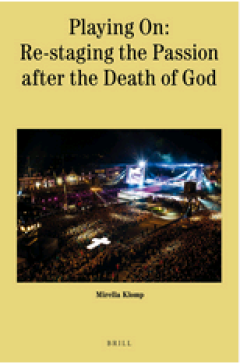
Playing On: Re-staging the Passion after the Death of God
Dalam apa yang sering dianggap sebagai 'masyarakat "setelah Tuhan"', jutaan orang Belanda berpartisipasi setiap tahun dalam pertunjukan multi-media publik tentang Pasion Kristus. Apa yang harus dilakukan dengan paradoks ini?. Dalam Playing On: Re-staging the Passion after the Death of God, Mirella Klomp menawarkan analisis teologis tentang pertunjukan ini dan mereka yang terlibat di dalamnya. B…
- Edition
- -
- ISBN/ISSN
- 9789004442948
- Collation
- online resource ( 203 Pages)
- Series Title
- Teologi dalam Praktik
- Call Number
- 190.90904 KLO p
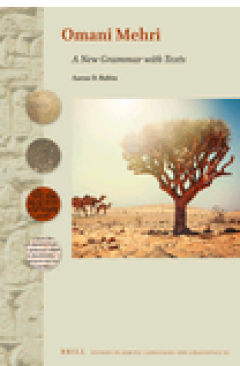
Omani Mehri; A New Grammar with Texts
Buku ini berisi deskripsi gramatikal yang komprehensif tentang Mehri, sebuah bahasa Semit yang tidak tertulis yang digunakan di daerah Dhofar di Oman, bersama dengan korpus lebih dari seratus teks. Topik dalam fonologi, semua aspek morfologi, dan berbagai fitur sintaksis dibahas. Teks-teks tersebut, disajikan dengan komentar yang luas, dikumpulkan oleh mendiang T.M. Johnstone. Beberapa diterbit…
- Edition
- -
- ISBN/ISSN
- 9789004362475
- Collation
- online resource ( XIII, 872 Pages)
- Series Title
- Studi dalam Bahasa Semit dan Linguistik
- Call Number
- 492.936 RUB o
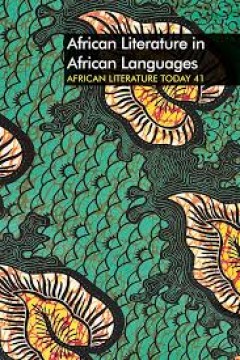
African Literature in African Languages
Interrogates and explores African literature in African languages today, and the continuing interfaces between works in indigenous languages and those written in European languages or languages of colonizers. Sixty years after the Conference of African Writers of English Expression at Makerere University, the dominance in the global canon of African literatures written in European languages ove…
- Edition
- -
- ISBN/ISSN
- 9781847013460
- Collation
- -
- Series Title
- -
- Call Number
- -
 Computer Science, Information & General Works
Computer Science, Information & General Works  Philosophy & Psychology
Philosophy & Psychology  Religion
Religion  Social Sciences
Social Sciences  Language
Language  Pure Science
Pure Science  Applied Sciences
Applied Sciences  Art & Recreation
Art & Recreation  Literature
Literature  History & Geography
History & Geography